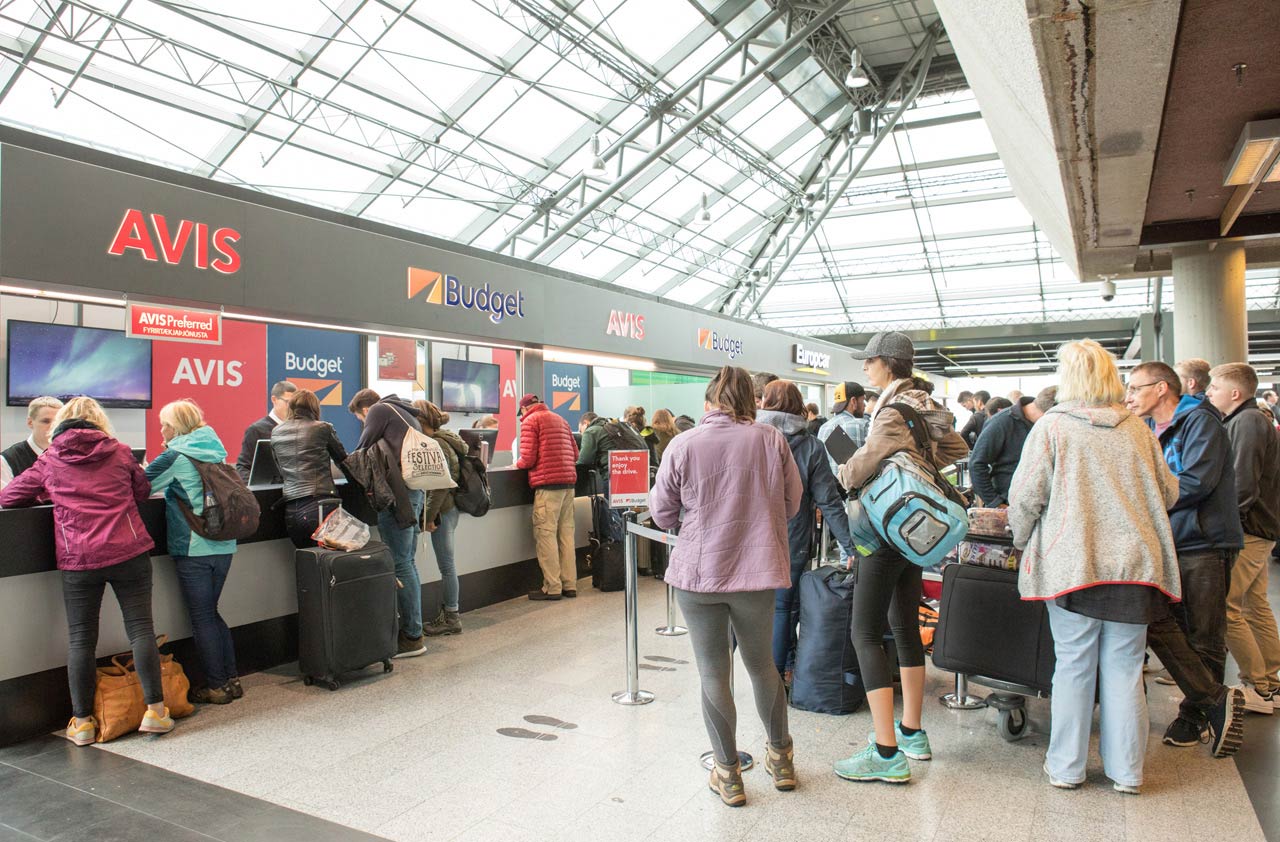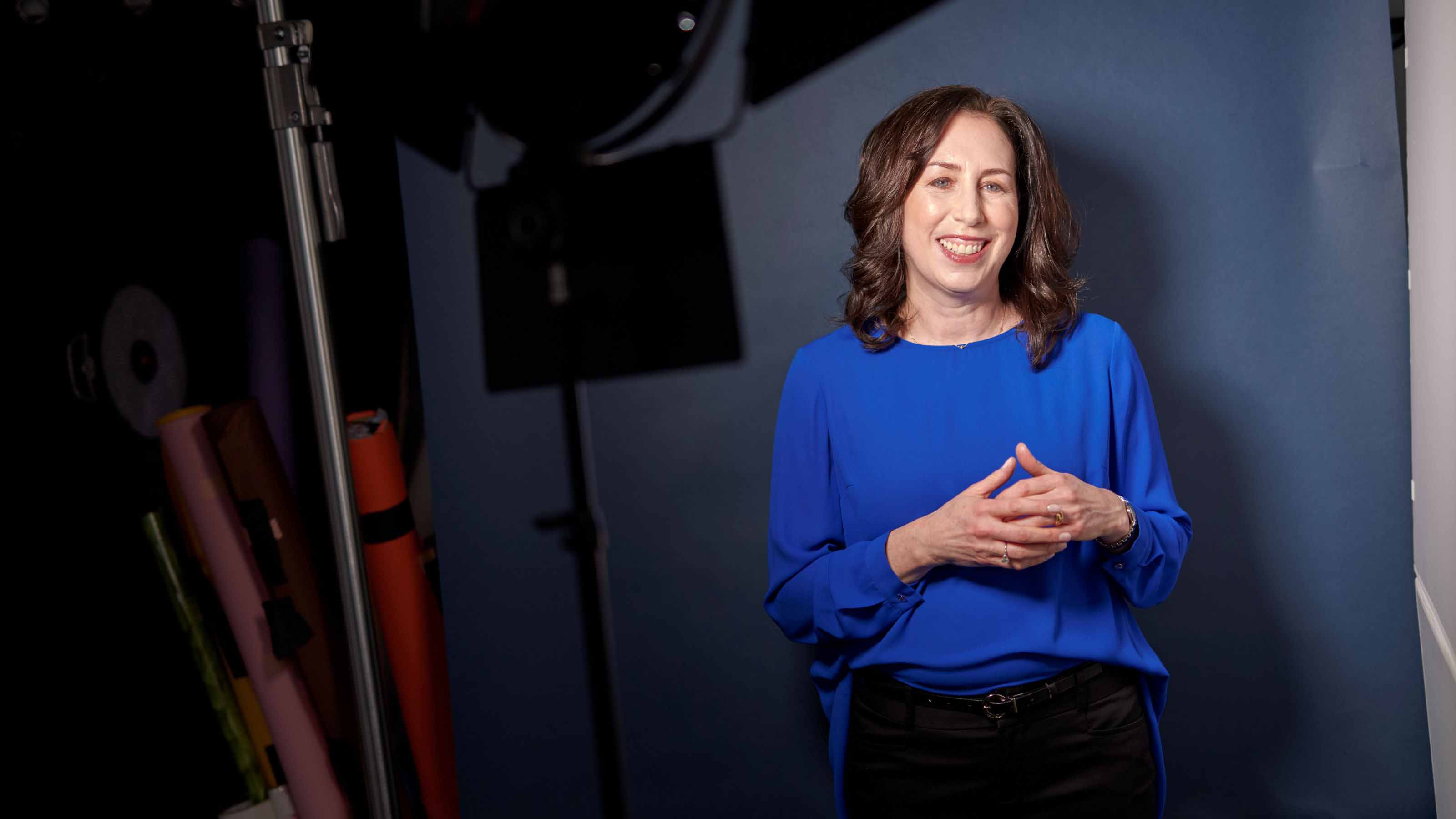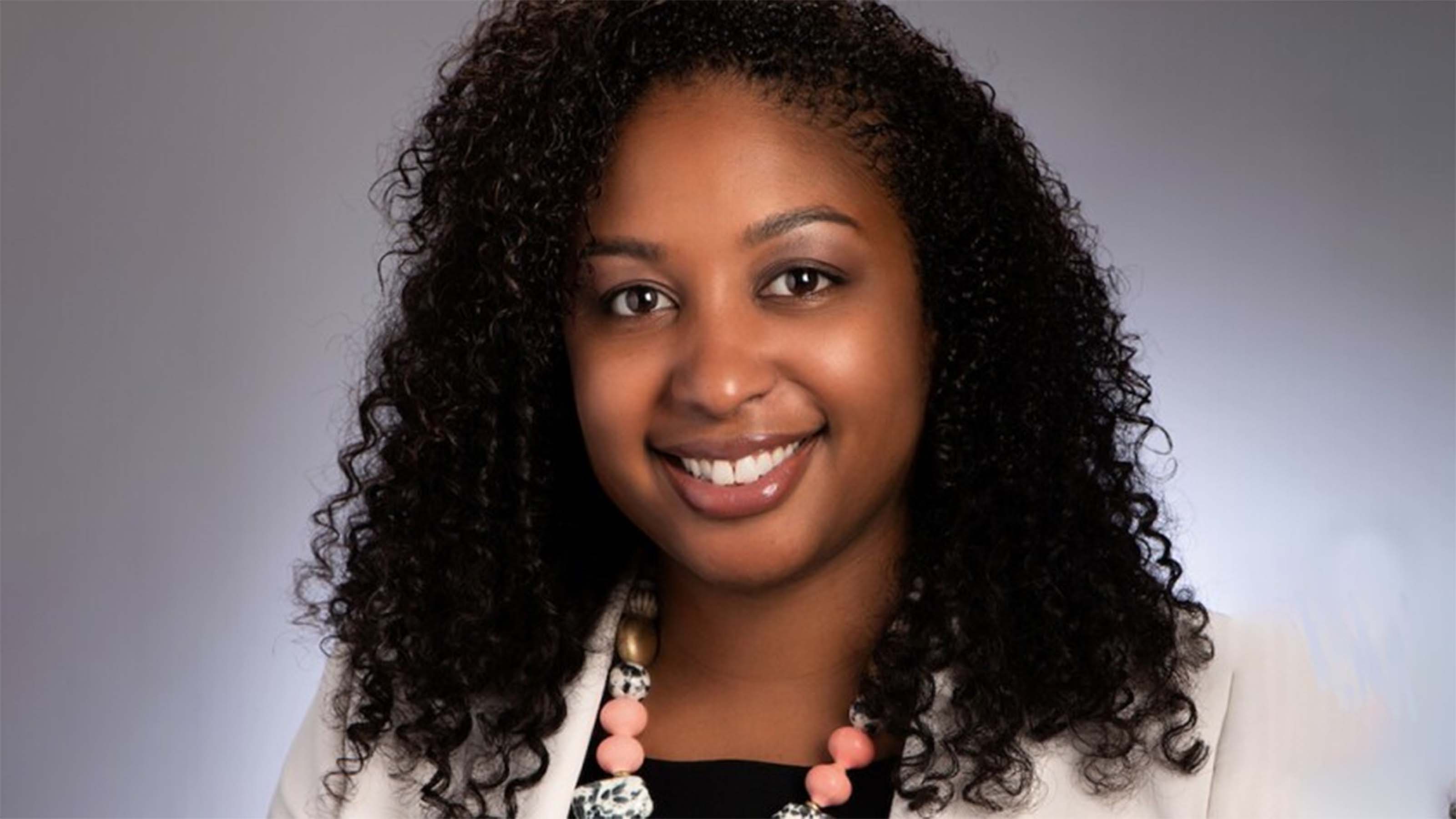Don't Overpay for Your Next Rental Car
Kiplinger's resident car guru David Muhlbaum joins the podcast to tell consumers how to strike the best deal on rental cars for the summer travel season. Also, job-search strategies during a period of historically low unemployment.

Profit and prosper with the best of Kiplinger's advice on investing, taxes, retirement, personal finance and much more. Delivered daily. Enter your email in the box and click Sign Me Up.
You are now subscribed
Your newsletter sign-up was successful
Want to add more newsletters?

Delivered daily
Kiplinger Today
Profit and prosper with the best of Kiplinger's advice on investing, taxes, retirement, personal finance and much more delivered daily. Smart money moves start here.

Sent five days a week
Kiplinger A Step Ahead
Get practical help to make better financial decisions in your everyday life, from spending to savings on top deals.

Delivered daily
Kiplinger Closing Bell
Get today's biggest financial and investing headlines delivered to your inbox every day the U.S. stock market is open.

Sent twice a week
Kiplinger Adviser Intel
Financial pros across the country share best practices and fresh tactics to preserve and grow your wealth.

Delivered weekly
Kiplinger Tax Tips
Trim your federal and state tax bills with practical tax-planning and tax-cutting strategies.

Sent twice a week
Kiplinger Retirement Tips
Your twice-a-week guide to planning and enjoying a financially secure and richly rewarding retirement

Sent bimonthly.
Kiplinger Adviser Angle
Insights for advisers, wealth managers and other financial professionals.

Sent twice a week
Kiplinger Investing Weekly
Your twice-a-week roundup of promising stocks, funds, companies and industries you should consider, ones you should avoid, and why.

Sent weekly for six weeks
Kiplinger Invest for Retirement
Your step-by-step six-part series on how to invest for retirement, from devising a successful strategy to exactly which investments to choose.
Ryan: What could be easier and more transparent than renting a car? Oh, right, everything. But never fear, Kiplinger car guru David Muhlbaum joins us for a discussion on rental car strategies in our main segment. On today's show, Sandy and I give you job search advice amid historically low unemployment, and I do my best Alex Trebek impression in a game of personal finance Jeopardy. That's all ahead on this episode of Your Money's Worth. Stick around.
- Episode Length: 00:29:35
- Links and resources mentioned in this episode
- SUBSCRIBE: Apple Google Play Spotify Overcast RSS
Ryan: Welcome to Your Money's Worth. I'm Kiplinger associate editor Ryan Ermey, joined as always by senior editor Sandy Block. Sandy, how are you?
Sandy: I'm good.
From just $107.88 $24.99 for Kiplinger Personal Finance
Become a smarter, better informed investor. Subscribe from just $107.88 $24.99, plus get up to 4 Special Issues

Sign up for Kiplinger’s Free Newsletters
Profit and prosper with the best of expert advice on investing, taxes, retirement, personal finance and more - straight to your e-mail.
Profit and prosper with the best of expert advice - straight to your e-mail.
Ryan: It's May. That means graduation season is upon us, so we wanted to talk about the sort of job hunt situation for new grads. It just so happens that we have... it's almost like we planned these issues... we have an interview in the June 2019 issue with a gentleman from the National Association of Colleges and Employers, an organization I wasn't aware existed when I was looking for job out of college. It would been nice to know these people. But, the unemployment rate is at historic lows, and so we expect U.S. employers to increase hiring of new college grads... I believe the story says... by 11% compared with last year. Companies are filling talent as baby boomers retire, and grads can expect to receive multiple job offers. Did you receive multiple job offers when you finished college?
Sandy: No, because I was in journalism.
Ryan: Yeah, me, too.
Sandy: But the encouraging thing about this interview is not just engineers and people who do code, even liberal arts majors are in demand because a lot of employers are looking for the soft skills.
Ryan: Yes. This is one of the things I thought was particularly interesting about the interview that the technical skills are really something that employers increasingly want to teach you on the job anyway, which makes sense, because-
Sandy: It changes, yeah.
Ryan: ... exactly. If you are a new grad or really anyone on the hunt for a new gig, it would make sense to emphasize your written and oral communication skills on your resume and in your cover letter. Now, obviously, your cover letter, the way to emphasize your written skills in your cover letter is to write a good cover letter.
Sandy: And don't misspell any words.
Ryan: Yeah. But that's sort of what they're on the lookout for, communication skills, critical thinking, project management. These are all things that you should accentuate. One of the other things that appears in that interview is that even though unemployment is so low and the hiring rate is increasing, pay is increasing quite a bit more modestly, so negotiating a salary, unless you have a desirable graduate degree or are in a sort of fast-growing field, might be tricky. One thing that we want to talk about... dovetailing off of that... is that salary might not be the most important thing, or only thing, that you're negotiating for.
Sandy: That's right. If you're getting multiple offers... and you know, good on you... but don't just look at salary, because increasingly the benefits are going to really account for a big part of the value of this job. When I was looking for jobs years ago, and you asked about health care benefit, health insurance, they would say, "Oh, we just offer the standard package," or "Yeah, we offer retirement benefits." Well, that just doesn't cut it anymore, because there really is a huge variation in the value of the benefits and even how they'll affect your paycheck. Think of it this way, if you take a job with a company that pays you more, but ends up charging you more for health care premiums, health insurance premiums, your paycheck might actually be less. It really behooves you, particularly if you have multiple offers, to really dig down and see what else the employer is offering other than your weekly or bi-weekly paycheck. Do they have a 401(k) match? What kind of health insurance do they provide? If it's a high-deductible plan or that's an option, do they match contributions to a health savings account?
Sandy: These are all things that really could affect your bottom line, perhaps even more than your pay. When you think about your 401(k) plan, that's something that you're going to have forever. Someone from Fidelity investments was in the office a couple of years ago. She was in charge of employee benefits. She said she had been to some hip companies down in Austin, startups that have ping-pong tables, and beer in the fridge-
Ryan: Friday afternoon beer in the office.
Sandy: ... but no 401(k) plan. So, great, you get beer, but you've got no retirement. These are really... particularly small companies which aren't as likely to offer retirement savings. This is something that you really want to look at.
Ryan: The 401(k) plan is particularly key because that's not only sort of present value, that contribution, that match, is just free money going into your account, but then you also have to think about the future value of that, which is quite a bit more valuable than having a ping-pong table, or having the Friday afternoon beer in the office, or anything like that.
Sandy: That's right, because you are going to take that 401(k) plan with you when you go. If the company does provide a match, that's money. That is money in your pocket, so you should look at that as pay, and not just as some kind of extra perk. It's money that... and particularly when you're young, the more you put into your 401(k) plan, the more time you have for it to grow, so it's really important to start that up.
Ryan: Another thing that I've heard people negotiating for, especially if maybe they're going to have to move or increase their commute for a new gig is the amount of time you actually have to be in the office.
Sandy: That's right. That's becoming more and more of a perk with companies. I wouldn't recommend at your first job interview to say, "How much vacation do I get?" That's kind of a bad call. But it is worth looking into as you get close to negotiating an offer, because companies in an effort to attract young people or talented people, they're aware that people are keyed into a quality of life. That may include more options to telecommute, so as you said, you're not spending as much time on the road, more flexible hours. I read an article just this morning about a company that basically doesn't have any hours at all. It just says your job is getting your work done, and however many hours that takes, that's how many hours you have to work. I think there is a trend away from having to be in your office from nine to five that's very appealing to a lot of people.
Sandy: The other thing that some companies are doing, instead of saying you have X number of vacation days, X number of sick days, they just give you a certain number of days to use however you want. That may appeal to you; it may not. But it's something to establish before you start, because this is the kind of thing that really will affect your experience, your quality of life, and how much you like that job.
Ryan: Not only that, I've heard of a lot of companies... and I have a few friends that work for these kind of companies... that just have unlimited vacation.
Sandy: Yeah, which is really interesting.
Ryan: You can take as much as you want, which is like this whole psychological experiment, like if we give them as much as they want, how much will they actually feel emboldened to take. I think that people actually take less.
Sandy: They take less. That's probably the same way with the company that doesn't have any real hours, probably people are working a lot. But, I think these are all thing to consider, particularly if you're in demand, if you have multiple offers. The paycheck is just the beginning.
Ryan: When it comes to the culture of a company, it absolutely pays to ask. If it's unlimited vacation, but no one takes it, and it's like you're an office pariah if you take your vacation, it's worth getting on the phone... especially if you have multiple offers... talk to some of the people at these companies. Sometimes you'll get a chance to do that when you're interviewing. You'll interview with 10 different people, and they'll say, "Do you have any questions for me?" You'll say, "Yeah. What's it like to work here?" Have some of these questions in mind, because like we said, pay is one thing, but working at an organization that has a culture that you're going to feel comfortable and supported is equally important.
Sandy: That's right.
Ryan: To insure or not to insure? David Muhlbaum is talking rental car strategies next.
Ryan: All right. We are back. We're here with Kiplinger senior online editor and Drive Time columnist for the magazine, generally our resident car guy David Muhlbaum. David, thank you for coming on.
David: My pleasure.
Ryan: We're talking car rental strategies today in conjunction with people going on summer trips. They're renting cars. Our advice for finding the best price on just about anything on this podcast always seems to be to shop around. Is shopping around for car rentals kind of like shopping for airfares?
David: It requires really, in a way, almost more shopping around, or rather it's that there's more variability, because car renting is not quite the same commodity as an airline ticket. A lot of it depends on the state in which you rent your car, because of whatever insurance is going on in the state, and then it depends on location. Specifically, are you renting at an airport or some other location?
Sandy: I've heard that sometimes if you can figure out a way to get off the airport lot, you can save money by renting a car somewhere else. Is that true?
David: Yeah. There are schemes people do. They'll grab an Uber or a taxi, and go to an off-airport location to rent at a lower rate. However, it's not always the case. The reason being that because airports are a high volume location, they can have good competition for rates. For example, an airport might actually be cheaper than some downtown location that has to pay really expensive garage rates to house a handful of cars.
Sandy: Plus, you have to get there.
David: Plus, you have to get there.
Sandy: You have to factor that in.
David: So, shop around, again. I've actually taken advantage of airport locations in order to get myself back to my flight.
Sandy: Right, right. Yeah, because then you're not having to pay for a cab, so you have to-
David: Exactly.
Sandy: ... figure all that in.
David: Just one leg out.
Sandy: Well, given that there's such variability in location, what are things that you can do that will lower your costs wherever you're renting from?
David: Well, there are... shop around, again. We like to recommend... there's this website called AutoSlash. I've not used it myself, but a number of people here at Kiplinger have.
Ryan: Our colleague Miriam Cross is a fan.
David: Essentially, it does a little prescreen on you. It says, what credit cards do you hold? Who do you work for, sometimes, or what programs do you participate in? By that, they mean AAA or are you a Costco member? What other things do they... they want a little picture of you. Then, essentially what they do is they shop you around. It's like another layer on top of the other websites. They shop around to get the best rate for you. I mean, I've only sampled it. It looked promising. As I mentioned, people here like the way it works. That's sort of a metasite to check the other metasites for a rate.
Ryan: The other thing I think about when I'm thinking about shopping around for a rental car is you have the price, but then there are all of these sorts of fees and add-ons, so what should people be on the lookout for there?
David: Well, many fees, most of the fees you'll see up front, there's not a whole lot of way around them. There are things like the airport recovery fee. This goes back to why renting from an airport can often be more expensive. They can be the rental agency trying to recoup the cost of registering their car in the state. Essentially, they tack these on as separate lines because then they could say, "Well, we've just got to cover what it costs to keep the car in the state," and you're on the hook for them, so not a whole lot of wiggle room with those.
Ryan: But what about, every time I rent a car, they make this big pitch for having them fill up the tank. Is that a good deal?
David: I mean, you look at the wall, and you look at the price of gas, and they'll often tell you... because they're doing the hard sell... they'll tell you how the price that they're offering per gallon compares to the local. It's usually pretty darn close or better. It only works if you use the whole tank. Frankly, you'd have to bring the car back close to dry to make it work.
Ryan: Throw it in neutral down the ramp.
David: If you're really into your gamesmanship, okay, but I'm in the classic fill it yourself and-
Sandy: You usually say, "No."
David: ... return it. I'll say, "No," to that.
Sandy: We do, too. We usually just say, "No."
David: Return it full. One of the things that has made the old return-it-full strategy easier is apps like Gas Buddy, and frankly, just being able to web search where the gas station is and make sure it's open.
Ryan: Most of them will charge you for an additional driver, too, right?
David: Yeah. Additional driver fee is again one of these things that vary by state. By that I mean, specifically, your spouse is often included without a fee, so that's something to check on. If you're traveling with your spouse, can you get them to be a backup driver for free?
Sandy: I wonder if they ask for a marriage license. What if you just say, "Hey, that's my spouse."
Ryan: I'm going to need your driver's license and your marriage license. So, the big question-
David: That's a very good point.
Ryan: The million-dollar question when it comes to rental cars is insurance. Now I know that your personal car insurance is going to maybe cover some of it, and your credit card could cover some of it, which is why a lot of people say to skip the LDW, the loss, damage, or collision damage waiver-
David: Because it can really add up, too.
Ryan: ... it can really add up. What is the verdict on that?
David: Okay. Well, this is both an easy call and a hard call. If you're the kind of person who wants to have no worries-
Ryan: I am that kind of person.
David: ... if you want no worries, we are currently recommending that you take the rental company's CDW or LDW, that you accept that expense of insurance, because it's... and we'll get back to the cards... it's pretty much the only way to guarantee that if just something goes wrong, that you can just go, "Maah," and walk away.
Sandy: Your problem.
David: Your problem, not mine. Now, to the cards, many cards do provide coverage for essentially the kind of losses that would be covered by the CDW or LDW, but most of them do it as a secondary coverage, which means that the rental car company is first going to come after your car insurance and you, so you're going to have to pay out-of-pocket and duke it out with your own car insurance and credit card person to get it all sorted out. Some of the exceptions are American Express offers a program... I think it's supplemental to the card.
Sandy: You pay extra for it?
David: You pay a little extra, but it's definitely cheaper overall. A couple of the Chase Sapphire Preferred cards serve as primary cards, and there are a few others, as well. Anyway, it really pays to check out with your own credit card first exactly what they do if you don't want to just pay up front for the rental car insurance.
Sandy: Can you talk a little bit about how you can really get hammered if the rental car company says that the car is out of service or they can't replace the car? There's a term for that.
David: Yeah. They call it loss of use.
Sandy: Loss of use.
David: There's also loss of use. There's also diminished value, which is the concept that a car with any damage is never as good as it was, no matter how it was fixed. The fundamental thing to remember is this, any kind of damage to a car is messy. Damage to a rental car is really messy, because it doesn't matter who is at fault, at least at first. For these costs, it doesn't matter who is at... You could be sitting at a traffic light and get rear-ended by a city trash truck. The rental company, they're like, "Well, that car is a mess now, and it's going to be out of service. We can't make money on that car." Part of the cost that they're going to try to recover include what it cost, or what the rack rate to rent that car is per day that it's sitting there or being repaired, possibly diminished value, and, of course, the actual cost of fixing the car. Now, in this scenario that I just mentioned, maybe ultimately the person at fault-
Sandy: The trash truck would pay, yeah.
David: ... the trash truck would be at fault, but good luck. It could be awhile.
Sandy: It's kind of like their call. You don't have a way to challenge when they say loss of use. They could say it's loss of use for weeks, and you don't really have any way to fight back against that.
David: Right. That's where who bought coverage is brought to the table, is going to duke that out.
Sandy: Do you buy insurance when you rent a car?
David: I have sort of... generally speaking, I like to gamble, but increasingly I find myself ponying up for it. I don't have one of the fancy cards that will provide it, so I sometimes look at the situation. If it's, "Oh, I'm just going to have this car for two days in New Hampshire, and it's going to sit in a parking lot for most of the time," I'll take my chances. If I'm renting a car in another country or Los Angeles, I'm like, "Nah."
Sandy: Well, the other thing to think about is even if your own car insurance does cover some of it, isn't there a good chance that your car insurance premiums will go up after you pay the claims?
David: Yes. If your car insurance is functioning as the primary insurance, that is, even if you have the credit card insurance, yeah, you're on the hook. That primary versus secondary, those are the terms you want to look into with your card issuer, and your car insurance, and the car rental company.
Ryan: One other thing that this makes me think of is... and I've definitely gone both ways on the insurance... but especially if I don't pay for it, I absolutely take out my phone and take pictures of the car. I mean, is that-
David: Oh, yeah, yeah. That's another good point. I mean, obviously, if you've accepted the insurance, it's kind of irrelevant.
Ryan: Then you get hit by a trash truck.
David: Right. You get hit by a trash truck... but if you are gambling... and maybe even if you're not, just to avoid any kind of headache... so usually there's a little process where you have to check out the car before you leave the lot. I actually had this happen to me on the New Hampshire rental I just mentioned. It was late at night at a small airport. There was only one person working. I got out to the car, which once I'm sort of given the key, released the car, got to the car, looked at it, and there was a scratch on the bumper through the paint.
David: That was the sort of thing that I would have normally been like, "I'm going to flag this, just in case." I figured I would be doing that when I drove out of the garage, and that there would be... some airports you fill out a little form, hand them your driver's license, make sure you are actually the person who is supposed to have that car... poof, I was off into the night. Clearly, the rental car people had taken... how many people are they going to keep on duty for... One of the ways to solve that, or what I should have done, is to take photos. If you see anything... and be conservative, because even if the person at the lot is like, "Ah, don't worry about it," that's just their say-so-
Ryan: Also, that guy may not be working when you get back.
David: ... well, the woman. You've got that wonderful little phone with the camera in your pocket. Use it for evidence.
Ryan: Alright. Well, this has been really fantastic. Are you happy to stick around? We're playing a little game of Jeopardy after the break.
David: I'm so game.
Ryan: Alright. Sounds great.
Ryan: When we come back, it's a personal finance Jeopardy round, straight out of 1986. Don't go anywhere.
Ryan: Before we go, we wanted to play a quick game of financial Jeopardy. Now, as loyal listeners know, I recently appeared on Jeopardy. As such, I was also asked to write an investing-related quiz for Kiplinger.com, which we'll put in the show notes, with all of the trickiest investing questions that have appeared on the show through the years. For this, I used the J! Archive, which is the fan-sourced Jeopardy question-and-answer archive. I found, when searching through the archive that only once in the show's history has personal finance appeared as a category. It was from 1986, November 19, 1986. The Double Jeopardy round in which it appeared at the time, the clue values were $200, $400, $600, $800, and $1,000, as Alex Trebek says. I'm going to give you guys a chance. Sandy and I were just going to do this together, but it really takes all of the suspense out of it if there is no other competition, so, David, thank you for sticking around.
Ryan: Sandy, since you're the returning champ, you can select first. Remember, two, four, six, eight, or a thousand.
Sandy: Oh, I'm going to be like James Holzhauer and go right to $1,000.
Ryan: All right. The $1,000 clue... and the category, you'll remember, is personal finance from 1986, although this stuff is still relevant. Discount bonds, which as their name suggests, pay no dividends. Oh, David.
David: Zero coupon. What is zero coupon?
Ryan: Yes. Good save. You have to answer in the form of a question. Yes, zero coupon bonds. What is the point of a bond that pays no interest? Well, you still get the face value of the bond when it reaches maturity, so investors buy zero coupon bonds at a deep discount to their face value. Once the bonds reach maturity, you can turn a profit. I know Alex doesn't usually explain the answers, but, you know.
David: And you might pay capital gains on that. That's one thing that's a little bit different.
Ryan: This makes for better radio. All right. David, you're aboard.
David: What do I do?
Ryan: You select a dollar amount.
David: Oh, a dollar amount. I will select... since that went so well... I will select $800, please.
Ryan: This Fidelity mutual fund shares its name with a Portuguese explorer. David again.
David: What is Magellan?
Ryan: Yes, indeed. In 1986 Magellan was a very big deal, because it was still being run by investing legend Peter Lynch.
Sandy: Peter Lynch. I knew that.
Ryan: He helmed the fund from 1977 through 1990. Over that period, the fund returned an annualized 29% per year, and fund assets grew from $20 million to $14 billion. Fidelity Magellan is still around.
David: That was going to be my question.
Ryan: It's no longer the flagship fund. Over the past 15 years, the fund has trailed the S&P along with 91% of its peers.
Sandy: Oh, dear.
Ryan: If you're looking for the current Fidelity "flagship" fund, the actively managed fund with the most assets is Fidelity Contrafund-
Sandy: That was going to be my answer, but that's not an explorer.
Ryan: ... absolutely a superb fund, which despite managing some $123 billion, is still open to new investors. David, select a dollar amount.
David: I guess I'll move down to $600, please.
Ryan: The interest or dividends you get, or a sign saying you must give up the right of way. Sandy.
Sandy: Yield. What is... ? What is yield, Alex?
Ryan: What is yield is exactly right. See how hard it is? Even on a podcast, imagine being under the lights. So, yes, yield is the income you're getting paid on an investment divided into the cost of that investment. If a stock yields 4%, that means the annual income, the total of the dividends are going to get paid, divided into the price of the stock is 4%. Serendipitously, in our latest issue of the magazine, the June 2019 issue on newsstands soon, we have 33 ways to get higher yields on the cover.
Sandy: That's right.
David: Yield-fest.
Sandy: It is a yield-fest.
Ryan: Our annual yield-fest. Sandy, select.
Sandy: What's left? $200?
Ryan: This department puts the T in T-bills. Sandy.
Sandy: What is Treasury?
Ryan: Yes, indeed. T-bills are short-term treasuries. You may remember, once again if you're a loyal listener, that we talked about the rate on the three-month T-bill in our discussion of the yield curve. Interest rates on short-term debt are affected by monetary policies set out by the Federal Reserve, so the rate on your T-bill is directly related to the Fed funds rate. Sandy, the last clue belongs to you, and it is what the letters IRA stand for. Sandy.
Sandy: What is Individual Retirement Account?
Ryan: Correct.
Sandy: Alright. Someone got that wrong. Alex should just...
David: Did you know that that's actually my first name?
Sandy: Ira. I did know that. So your first name is Individual Retirement Account?
David: You would not believe the confusion this used to engender when you had to talk to financial management people on the phone. They would be like, "Wait, which account?"
Sandy: Ira's account.
David: Yeah.
Ryan: Ira's IRA.
Sandy: Which is why you go by David, right?
David: Part of it.
Ryan: The only thing I wanted to plug here is that, first of all, the Roth IRA wouldn't have existed-
David: 1986 it wasn't around.
Ryan: ... when this came out. The Roth came out in 1997. We talked about both kinds of IRAs on the show before, but on an upcoming show we will have a segment on why you need a Roth IRA, so keep an eye out for that. I think that math-wise, David came out on top by just a little bit there, but Sandy, a valiant comeback. Well done. That's it for this episode of Your Money's Worth. For show notes and more great Kiplinger content on the topics we discussed on today's show, visit kiplinger.com/links/podcasts. You can stay connected with us on Twitter, on Facebook or by emailing us at podcast@kiplinger.com. If you like the show, please remember to rate, review, and subscribe to Your Money's Worth wherever you get your podcasts. Thanks for listening.
Links and resources mentioned in this episode
Profit and prosper with the best of Kiplinger's advice on investing, taxes, retirement, personal finance and much more. Delivered daily. Enter your email in the box and click Sign Me Up.

Block joined Kiplinger in June 2012 from USA Today, where she was a reporter and personal finance columnist for more than 15 years. Prior to that, she worked for the Akron Beacon-Journal and Dow Jones Newswires. In 1993, she was a Knight-Bagehot fellow in economics and business journalism at the Columbia University Graduate School of Journalism. She has a BA in communications from Bethany College in Bethany, W.Va.
-
 Dow Leads in Mixed Session on Amgen Earnings: Stock Market Today
Dow Leads in Mixed Session on Amgen Earnings: Stock Market TodayThe rest of Wall Street struggled as Advanced Micro Devices earnings caused a chip-stock sell-off.
-
 How to Watch the 2026 Winter Olympics Without Overpaying
How to Watch the 2026 Winter Olympics Without OverpayingHere’s how to stream the 2026 Winter Olympics live, including low-cost viewing options, Peacock access and ways to catch your favorite athletes and events from anywhere.
-
 Here’s How to Stream the Super Bowl for Less
Here’s How to Stream the Super Bowl for LessWe'll show you the least expensive ways to stream football's biggest event.
-
 PODCAST: Tax Breaks for College Finance with Kalman Chany
PODCAST: Tax Breaks for College Finance with Kalman ChanyPaying for College Paying for (ever-pricier) college is a challenge that this consultant meets head on with highly specific guidance.
-
 PODCAST: Car-Buying in an Inflated Market with Jenni Newman
PODCAST: Car-Buying in an Inflated Market with Jenni NewmanBuying & Leasing a Car With cars both scarce and expensive these days, what to do if you want – or need – a new ride? Car-buying strategist Jenni Newman of Cars.com shares some tips. Also, more on the magical 9% savings bond.
-
 PODCAST: How to Find a Job After Graduation, with Beth Hendler-Grunt
PODCAST: How to Find a Job After Graduation, with Beth Hendler-GruntStarting Out: New Grads and Young Professionals Today’s successful job applicants need to know how to ace the virtual interview and be prepared to do good old-fashioned research and networking. Also, gas prices are high, but try a little global perspective.
-
 PODCAST: Is a Recession Coming?
PODCAST: Is a Recession Coming?Smart Buying With a lot of recession talk out there, we might just talk ourselves into one. We take that risk with Jim Patterson of The Kiplinger Letter. Also, dollar stores: deal or no deal?
-
 PODCAST: This Couple Tackles Love and Money as a Team
PODCAST: This Couple Tackles Love and Money as a TeamGetting Married Fyooz Financial, the husband and wife team of Dan and Natalie Slagle, have carved out a niche advising other couples with the money questions that come with pairing up. Also, where is this troubled stock market headed?
-
 PODCAST: Which Documents to Keep, Which to Shred and Which to Scan
PODCAST: Which Documents to Keep, Which to Shred and Which to Scanhome insurance A speedy recovery from disaster can depend on your recordkeeping. Kiplinger’s Personal Finance writer Rivan Stinson tells us how to get our papers in order.
-
 PODCAST: High Gas Prices with The Kiplinger Letter’s Jim Patterson
PODCAST: High Gas Prices with The Kiplinger Letter’s Jim Pattersoncars Why are we paying so much more at the pump? How long will it last? What can you do? Plus: Congress is making changes to retirement-savings rules again.
-
 PODCAST: The Future of Certified Financial Planners with Kamila Elliott
PODCAST: The Future of Certified Financial Planners with Kamila ElliottBecoming an Investor CFPs will tell you (and we’d agree) that not all financial advice is the same. We talk with the chair of the CFP Board about what she’s doing to preserve her organization’s brand and extend its reach. Also, the right way to file your tax returns for free.

